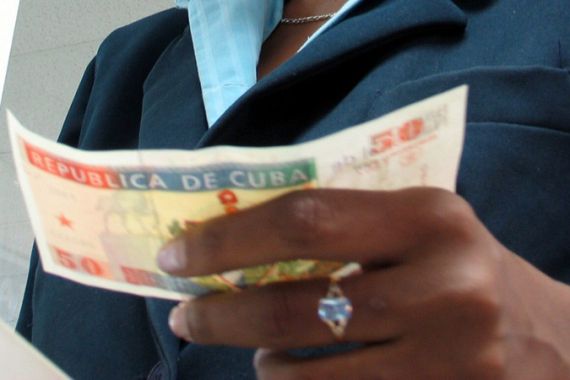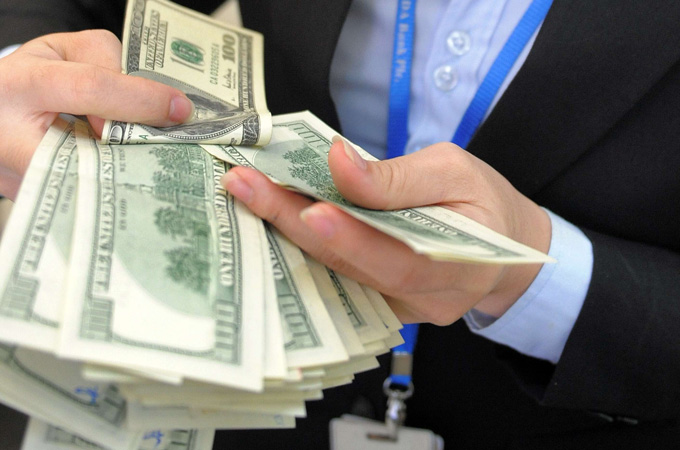Tax on Cuban cash exchange lifted
A new policy means recipients of Cuban remittances from the US are no longer required to pay a 10 per cent surcharge.

 |
| Prior to the new rule, many Cubans resorted to third party ‘mules’ to deliver remittances home.[AFP] |
Cubans who rely on remittances from abroad are hailing a US policy change that means they now will be able to sidestep a 10 per cent tax on wire money transfers.
The money transfer company Western Union said an arm of the US treasury department authorised it to pay remittances in Cuba’s convertible peso (CUC) instead of dollars, starting on December 20.
Previously, the treasury department’s office of foreign assets control required dollar transfers to Cuba to be paid out there in dollars, forcing recipients to pay the 10 per cent fee that the Cuban government imposes on cash dollar-to-CUC exchanges.
Philip Brenner, a professor of foreign policy at the American University, told Al Jazeera that “this is really just about money – there’s no ideology attached to it”.
“In fact, it’s not even clear that the Obama administration was aware that this administrative decision had been made by someone in the treasury department,” Brenner said.
“What this means is that if a Cuban American wants to send money to a family in Cuba, they will pay less, they will be able to send more. And right now, what’s happening in Cuba is an influx of materials and goods, so that Cubans can begin to start little shops, because there’s a major transformation going on in Cuba.”
Brenner said that one million Cubans lose their jobs in a new round of government cutbacks, and that those workers will enter the private sector, potentially armed with more cash from US relatives to purchase goods and set up businesses.
Small, significant change
The changes were met with enthusiasm in Cuba, where many rely on remittances to supplement salaries averaging just $20 a month.
“It’s good news,” Zoila Rodriguez said as she waited in line at a Western Union branch in the capital, Havana, on Monday. “It used to be that when my brother sent me money, I had to change it at a (state-run) currency exchange office.”
Other clients said it was the first time in years their families had sent money through an official channel rather than through the black market.
For much of the 1990s, the dollar was the primary form of hard currency in Cuba, but in 2004, the Cuban government ordered stores and businesses to stop accepting it.
Authorities applied the 10 per cent surcharge on cash dollar-CUC exchanges the same year.
Cuban authorities said those rules were in response to a US crackdown on foreign banks that sent dollars to the island in violation of Washington’s long-standing trade sanctions against Cold War enemy Cuba.